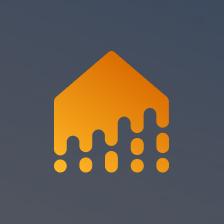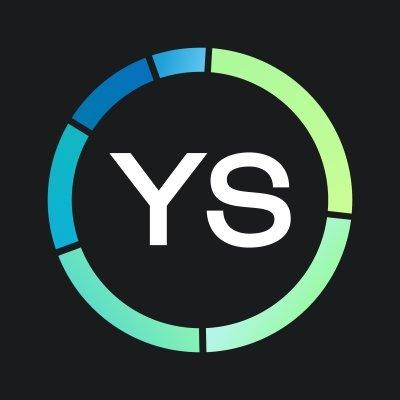Invest in multifamily real estate
Invest in private market alternatives
Investments
$5,000
The minimum investment amount on HoneyBricks typically starts at $5,000, although some specific projects may require higher minimums.
Moderate Risk
3/5
Investing in HoneyBricks involves various risks inherent to real estate and investment platforms, including market volatility, liquidity challenges, regulatory changes, operational uncertainties, economic fluctuations, and technology-related vulnerabilities.
Moderate Risk
3/5
Yieldstreet investments, focused on high-yield, specialty lending, carry inherent risks higher than traditional investments, primarily due to the potential for borrower default.
Moderate Liquidity
2/5
HoneyBricks offers a Secondary Market for liquidity, allowing investors to buy and sell assets after a 12-month hold via SPVs and blockchain technology.
Minimum Liquidity
1/5
Yieldstreet's investments are generally less liquid, meaning they cannot be quickly sold for cash. These private market alternatives often require longer holding periods.
Receive new reviews from Fintorial
High Return
15 %
HoneyBricks targets over 15% annual returns and aims for a cash-on-cash return of over 5% from its real estate investments. These returns are projections based on conservative reviews and are derived from property appreciation and reliable cash flows from high-occupancy assets.
Moderate Return
9.6 %
The expected net annualized return (IRR) for investors on Yieldstreet is 9.6%.
Long-term Investment
1-5 years
The investment time horizon on HoneyBricks is inherently long-term, with the expectation that investors may hold their investments for several years to fully realize the potential appreciation and sustained cash flows from multifamily real estate assets. While a secondary market exists to provide liquidity after a 12-month holding period, immediate or short-term exit opportunities may be limited.
Short-term Investment
6+ months
Yieldstreet's investments span time horizons from as brief as 6 months to as long as 5 years.
Who can invest
International
HoneyBricks is available to accredited US investors and to non-US investors without accreditation requirements.
Who can invest
United States
Yieldstreet is open to U.S. persons with a valid TIN, U.S. bank account, and U.S. mailing address. Non-accredited investors can access the Alternative Income Fund, while single asset investments require accredited investor status verification.
Moderate Volatility
3/5
The assets on HoneyBricks, like any real estate investments, are subject to market volatility influenced by economic conditions, interest rates, and local market trends. These fluctuations can impact property valuations, posing risks particularly for those seeking short-term gains.
Moderate Volatility
3/5
Assets on Yieldstreet, being alternative investments, often show different volatility compared to traditional markets, potentially offering less correlation with broad market swings.
Regulation and audits
SEC Regulated
HoneyBricks adheres to regulations set by the SEC and undergoes necessary audits to ensure transparency and investor protection. Its investment offerings require SEC filings and provide detailed offering circulars to investors.
Regulation and audits
SEC Regulated
Yieldstreet is regulated and undergoes regular audits for compliance. Its partnership with Synapse Brokerage LLC, an SEC-registered broker-dealer and FINRA and SIPC member, ensures adherence to strict financial regulations.
Insurance
Yes
HoneyBricks ensures its properties are insured against physical damages and losses, offering a layer of protection for investments. However, this insurance does not cover market volatility, economic downturns, or fraudulent activities that might affect property values. Additionally, coverage limits may not fully reflect current market valuations.
Insurance
Yes
Funds in the Yieldstreet Wallet are insured up to $250,000 by the FDIC, with deposits between $250,001 and $1 million spread across multiple FDIC-insured banks for extended coverage.
Payouts
Dividends
HoneyBricks investors receive dividends from the net rental income of properties after expenses and reserves. These regular cash distributions aim to provide a predictable passive income stream from high-occupancy multifamily real estate investments. The exact amount of dividends may vary with the performance of the assets.
Payouts
Dividends
Yieldstreet offers varied dividend or interest payment structures: fixed income investments provide monthly payments at a target yield, diversified portfolios offer quarterly target yields, and art investments yield returns upon sale, all subject to specific terms and potential annualized net returns.
Withdrawals
Investors on HoneyBricks can potentially get their money back by selling their shares on the platform's Secondary Market after a 12-month holding period, subject to market demand. The timing and success of the sale depend on market conditions, and while there are no HoneyBricks fees for the transfer, blockchain network fees may apply.
Withdrawals
Investors on Yieldstreet receive distributions directly into their Yieldstreet Wallet and can withdraw these funds to their bank account as desired.
Extra Fees
No
HoneyBricks charges no fees for initial investments or for transfers on the Secondary Market. Investors may only incur blockchain network fees for transactions executed on the platform.
Extra Fees
Yes
Yieldstreet's fees include a range from 0% to 2.5% annual management fees, structured notes incur a 1.25% annual management fee plus a $150 annual fund expense, the Yieldstreet Alternative Income Fund charges a 1.0% annual management fee and up to a 0.5% annual administrative expense.
Taxes
Tax Form
HoneyBricks offers tax-advantaged investing and provides necessary tax documentation to support investors in reporting their investment income.
Taxes
Tax Form
Yieldstreet issues either a K-1 or 1099 form for tax purposes, based on the legal structure of the investment, with details provided on the offering page and in downloadable documents when new offerings are launched.

